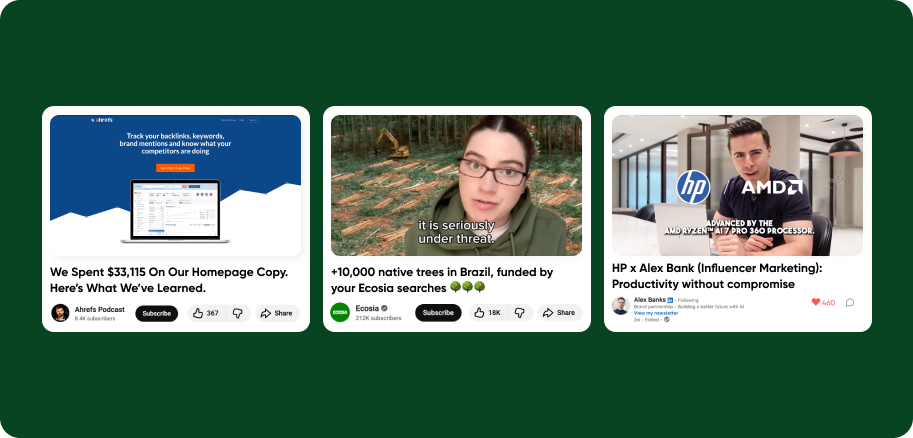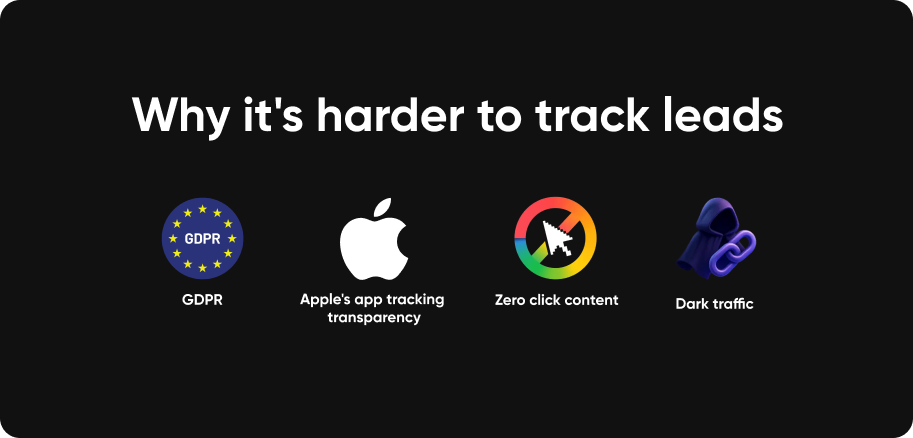Informative
November 24, 2025


Most B2B marketing blogs repeat the same advice: build thought leadership content, identify buyer personas, and replicate the AIDA (Awareness, Interest, Desire, Action) model. It’s all fair advice, but as a strategy piece for a competitive environment like London – it lacks teeth.
With over 983,000 private sector businesses, London is one of the most crowded B2B ecosystems in the world. Competition isn’t just local. Just as an example, we serve clients across the world because our services can be provided remotely. One day, we’re delivering campaigns in Germany, the other, we’re implementing International SEO for a client who has an Indian audience. What’s to say that a German or Indian agency couldn’t provide the same services?
Access to the same tools, channels, and even the same AI assistants means differentiation has to come from strategy, not noise.
This piece isn’t a generic list of B2B marketing ideas. Instead, we break down what still works in 2025, what’s become dead weight, and how modern B2B marketers in London are learning to cut through the noise.
The post-pandemic years have reshaped how B2B marketing works in London. Hybrid work has made outreach unpredictable; half your contacts don’t even sit at the same desk twice a week. The old-school cold call has been replaced by LinkedIn messages, Slack communities, and virtual demos.
Data privacy has also changed the game entirely. GDPR tightening across the UK and EU means consent-based targeting is stricter than ever. Apple’s App Tracking Transparency has made user behaviour on iOS harder to follow. Google is phasing out third-party cookies. Marketers now deal with dark traffic, leads that arrive without clear source data (links shared via private messages, email, or native mobile apps), and zero-click content, where prospects consume information without leaving the platform.
All of this makes attribution harder and marketing slower to measure. What marketers now need is a faster, more complex ecosystem that demands clarity, adaptability, and a serious handle on analytics.
The brands thriving in 2025 are the ones using digital channels intelligently, personalizing with purpose, and still sounding unmistakably human while doing it.
Some fundamentals never go out of style. They evolve. The brands that continue to win in B2B marketing in London are the ones adapting these fundamentals to how people actually make decisions today.
Good thought leadership builds trust. The most effective brands publish ideas that feel lived in: drawn from experience, tested against data, and reflective of what’s changing in their industries. They aren’t afraid to discuss what didn’t work or to share a strong point of view.
Have a look at these incredible pieces that blend thought leadership with authentic storytelling:

Each example shows that there isn’t a single road to thought leadership. The most effective brands use a mix of formats, from blogs and podcasts to social posts and webinars, choosing the ones that best fit their objectives, positioning, and audience.
Personal branding plays a major (and much-ignored) role here. When leaders share their thinking directly, through their own voices, opinions, and experiences, a brand’s expertise becomes far more credible and recognizable. That’s why almost all of HubSpot’s senior leaders post regularly on LinkedIn.
Inbound marketing is the process of drawing potential customers in through content that informs, educates, or solves a problem — rather than pushing messages out through ads or cold outreach. The goal is simple: earn attention by being genuinely useful.
Every article, video, or email should exist for a reason: to answer a question, address a pain point, or guide a next step. That takes planning, creative rigor, and constant testing.
Our top tips for inbound marketing:
Most of all: Keep testing. Track how your audience engages: which topics hold attention, which CTAs convert, and which formats drive the best leads. Adjust, republish, and optimize.

Account-based marketing (ABM) brings precision to B2B marketing strategy by focusing resources on high-value accounts.
Successful ABM begins with research—understanding each company’s structure, priorities, and buying process—and continues through tailored communication and alignment between sales and marketing.
Top ABM practices for 2025:
With AI and automation, personalization in modern B2B marketing tactics has reached new levels. Marketers can now adapt content and messaging to behavior, timing, and intent with far greater accuracy.
Adobe’s Creativity for All campaign is a standout example. Once known mainly for design software, Adobe reframed itself as a marketing and data powerhouse as competitors like Canva were gaining ground. The campaign featured personalized ads targeting CMOs, real customer stories, and analyst partnerships that built credibility.
They saw a 14% rise in brand favorability, a 180% increase in Experience Cloud searches, and a 33% jump in B2B sales inquiries in just three months. Data makes it measurable. Storytelling makes it memorable.
Paid media still delivers results, but efficiency has replaced scale as the true measure of success. Platforms like LinkedIn, search, and programmatic remain central to B2B lead generation in London, but each requires a focused strategy. Campaigns that perform well are built around clear objectives, strong creative, and measurable outcomes that connect directly to business goals.
B2B marketing changes fast, but some habits are still stuck in another decade. The challenge isn’t knowing what’s new; it’s letting go of what no longer moves the needle.
Mass email blasts used to work. They don’t anymore. Audiences expect relevance, and inboxes have become ruthless filters for anything generic.
Events still play an important role in B2B, but their impact depends entirely on what happens after the event. The most effective brands now plan event marketing as a full journey: pre-event targeting, on-site engagement, and post-event retargeting.
Search is still the first step for most buyers, yet many brands treat SEO like an afterthought. For multi-market businesses, localization and continuous optimization are non-negotiable.
Awareness is useful only if it leads somewhere. Modern measurement focuses on progression: how awareness translates into engagement, and how engagement leads to qualified leads and revenue.
The modern B2B marketing agency in London knows that blending creativity with intelligence is the future. It connects every channel and interaction into one measurable system, building for flow rather than stages.
The best marketers in London now operate like strategists, combining creative thinking, data fluency, and empathy in equal measure.
London’s B2B market rewards precision. Every industry, category, and scale demands a different approach.
Virgin Media O2 Business
After the merger, Virgin Media O2 Business built credibility through insight. Partnering with the Centre for Economics and Business Research, they studied how UK organizations were adapting to digital transformation and turned those findings into a year-long integrated campaign across print, social, virtual events, and earned media. Within a year, sales-qualified leads grew by 58%.
Adobe’s personalization benchmark
Adobe’s “Case for B2B Personalization” study with London Research showed that only 15% of B2B organizations have achieved full personalization maturity. Yet those who did saw measurable advantages across conversion, retention, and sales cycles.
Across categories, the principle holds: strategy beats templates. The fintechs leading with thought leadership, the manufacturers scaling through automation, and the consultancies investing in education all win by knowing their own landscapes.
wonderwork operates as a full-service B2B marketing agency in London, built to connect creativity and technology. We manage the entire marketing function end to end, meaning every output — from brand campaigns to technical SEO — starts with strategy and ends with measurable impact.
Our process begins with wonderword, a strategy document that anchors every client relationship. It captures the fundamentals: category analysis, competitor mapping, audience research, and market benchmarks.
Our approach spans the full marketing ecosystem:
The result is a closed-loop system. Creative built on intelligence, performance built on clarity, and growth that’s measurable from start to finish.
B2B marketing in London is evolving fast. The brands that will stand out are those that stay human while mastering the systems behind them – creative teams that understand data, and data teams that understand storytelling.
The fundamentals remain: strategy, consistency, and credibility. The shift is in execution — how intelligently those fundamentals are applied.
Integration is the new advantage: strategy that informs design, performance that shapes creativity, and reporting that drives better decisions.
If your marketing feels stuck in the past, this is the moment to rethink it.
wonderwork helps brands modernise their funnels, build credible strategies, and prove what performance really looks like.